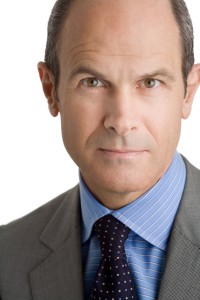Geoff Colvin: Face-to-Face with the Future
 When Geoff Colvin speaks, as he does daily on the CBS Radio Network, people listen. When he writes, as with his most recent book, Humans Are Underrated: What High Achievers Know That Brilliant Machines Never Will, people read. Regardless of medium, Colvin connects people with his keen insights on key issues driving change on all fronts. As a keynote speaker at the 54th Annual HRMA Conference + Tradeshow, Colvin bring his people-centric message to the HRMAX.
When Geoff Colvin speaks, as he does daily on the CBS Radio Network, people listen. When he writes, as with his most recent book, Humans Are Underrated: What High Achievers Know That Brilliant Machines Never Will, people read. Regardless of medium, Colvin connects people with his keen insights on key issues driving change on all fronts. As a keynote speaker at the 54th Annual HRMA Conference + Tradeshow, Colvin bring his people-centric message to the HRMAX.
Is it fair to say that automation is the major disruption facing industries? How will this change in the next decade?
Advancing technology is certainly the top source of potential disruption for companies in every industry. We all nod our heads at that observation, yet many business people still haven’t accepted that truly no one is immune. For example, I had long thought that consumer packaged goods—physical products with powerful brands that command strong brand loyalty—could not be disrupted by technology. Yet a couple of startups with innovative Net-based business models, Dollar Shave Club and Harry’s, are taking market share from the colossus of shaving, Gillette.
It’s a similar story for others who thought they were safe. Software is doing some legal work faster, cheaper, and better than human lawyers. Genuinely autonomous surgical robots are on the way. No one is immune.
The big change in the coming decade is simply that the capabilities of technology will advance faster than most of us dare to imagine. That reality will require every company to rethink its business model fearlessly. The number one anxiety I find among CEOs is that they’ll be blindsided by a new competitor they never even thought of. For example, as I write this, San Francisco’s largest taxi operator has just filed for bankruptcy. We all know why.
With technologies becoming more pervasive in the “rational, analytic” roles and functions, where should people be focusing their career intentions?
That question is not as easy to answer as it may seem. The conventional response is that computers are great at rational, analytic tasks, so we humans should focus on emotional tasks; computers don’t do emotion, it’s often said. But that’s just not true.
Computers can analyze faces and identify emotions in real time. They can even tell the difference between real emotions and fake emotions, and they do it better than people do. They can tell how you’re feeling by listening to you, and they can tell, better than people can, when you’re lying. Computers can diagnose clinical depression by analyzing subtle facial expressions and can discriminate between severe and remitted depression by listening to speech. Yes, computers can do emotion, and they’re doing it better every day.
In a world like that, how should humans direct their careers? By focusing not just on emotions, but on two-way interactions between humans; we sense another’s emotions, we respond in some emotionally appropriate way, the other person then senses and responds, and so on. When we interact in person, face-to-face, we connect in ways that are more powerful than we realize. For example, we unconsciously synchronize our pupil size with others, and this influences decisions. Work that requires and rewards deep personal interaction with other humans will be the high-value work as the economy evolves.
As we move from a knowledge economy to an experience economy, what is the single most important characteristic for leaders?
In a changing economy, the most important ability for a leader is understanding and embracing the change—easier said than done. In an experience economy, the most successful leaders feel in their bones the effect and the value of various experiences. That’s a very different ability from the knowledge-based abilities that have been the foundation of business success in the past.
As per the experiences of the American military in your latest book, what training and development changes are key for success in the new economy?
The first step in changing training and development is accepting that the new high-value skills can indeed by trained. Many people assume that interpersonal skills are actually innate traits—you’ve got them or you don’t. But as the military and a growing number of companies are showing, that’s incorrect. Everyone can get better at these abilities, and the most effective training is, in the large sense, the same as always.
Experiential learning works best, with experiences designed to push the learner just beyond his or her current abilities through high repetition and frequent feedback. The challenge is imagining the experiences that will best train the new high-value skills, and several organizations are making progress on this. By the way – and this is definitely ironic – often the skills can be trained quite effectively through technology.
What do you see as the role of HR for organizations seeking to thrive amidst such disruption?
In this environment, HR can add value most by helping the organization understand that the new high-value skills are fundamentally different from the ones we all grew up with. For centuries the economy has rewarded classroom-taught skills and knowledge learned from textbooks. Such skills and knowledge will remain important, but important isn’t the same as valuable. The highest value skills are increasingly skills of deep personal interaction. In today’s economy, success is less about what we know and more about what we’re like.
We rarely learned these skills in school, except maybe on the playground, and probably no one tried to teach them to us, except maybe mom and dad. That means HR’s second crucial role is to lead the way in training and developing the new high-value skills in employees.
The result will be a larger, strategically important role for HR. So HR leaders must be ready and eager to take on these new responsibilities and opportunities.
Geoff Colvin is a keynote speaker at HRMA’s Conference + Tradeshow 2016 in Vancouver. His session Humans are Underrated: What High Achievers Know That Brilliant Machines Never Will is on Wednesday, April 27. Find out more about this and other sessions at hrma.ca/conf2016.
(PeopleTalk Spring 2016)









